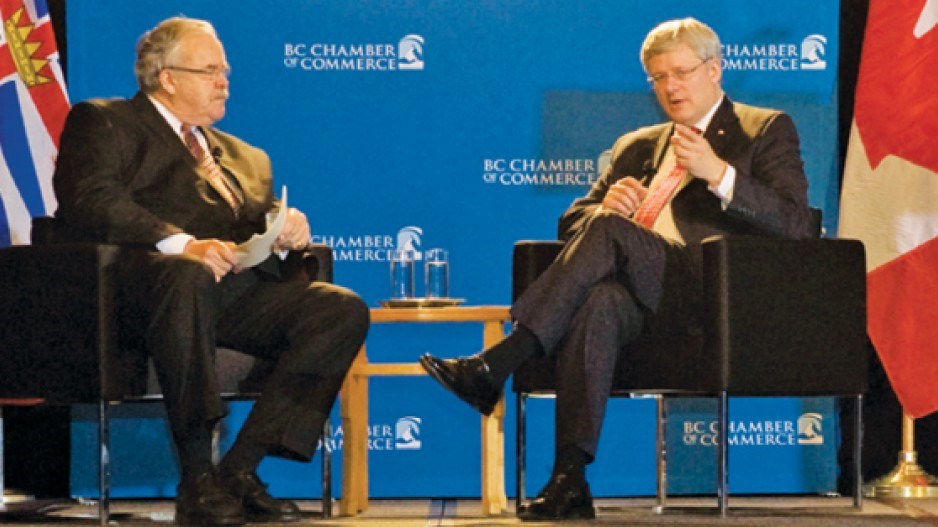While Ontario’s auto sector may be the loser in Canada’s new free trade agreement with South Korea, B.C. stands to win big in areas like forestry, seafood and liquefied natural gas.
Currently, 50% of all Canadian exports to Korea come from B.C.; Korea is also B.C.’s fourth-largest trading partner.
“There is no province that will benefit more from this agreement than British Columbia,” said Prime Minister Stephen Harper during an address in Vancouver March 12.
The free trade agreement, 10 years in the making, was announced March 10 in Seoul. Unifor and Ford Canada have criticized the deal, saying the removal of tariffs on South Korean imports will hurt Canada’s automobile manufacturing industry.
But B.C. businesses, such as fish processor Canfisco, say the deal will allow them to compete with the United States and the European Union. Those jurisdictions signed free trade agreements with South Korea in 2012 and 2011, respectively.
“The image that Canadian [seafood] products have in South Korea is high-quality, but also higher-price,” Rob Morley, vice-president of production for Canfisco, told Business in Vancouver. “So if we can get the duty reduction, we can deal with that price perception.”
That imbalance has led to Canadian seafood being nearly shut out of the Korean market and allowed Alaska to emerge as the dominant supplier, according to Yuen Pau Woo, president of the Asia Pacific Foundation. While B.C. exported $10 million worth of seafood to Korea in 2011, that number dropped to $5 million in 2012 and $4 million in 2013.
In 2013, B.C.’s seafood exports to Korea represented a tiny 0.2% share of all commodities exported, compared with 2.5% for China and 2.6% for Japan.
“South Korea is one of the top 10 seafood importers in the world, and right now Canada’s share of that market is only about 3%,” Morley said.
It’s the same story for B.C.’s forestry sector, which has also lost market share to the United States and the European Union in the past few years, said Rick Jeffery, president and CEO of the Coast Forest Products Association.
B.C.’s annual wood exports to Korea were around $330 million in 2010 and 2011. “We think it can be bigger than that,” Jeffery said, “and this free trade market will allow us to grow it up from that.”
He pointed out that Canada’s overall trade to South Korea dropped 30% in the past year.
The agreement will also eliminate the current 3% tariff on liquefied natural gas, something the B.C. government is touting as a benefit to the province’s plans to develop an LNG industry here. Korea is the second-largest importer of LNG, after Japan.
The tariffs on most products will be phased out gradually over a number of years. •
Korea deal could help in other Asian trade negotiations
Canada’s free trade agreement with South Korea could have an impact on two other Asian trade deals. One is the Trans-Pacific Partnership (TPP), a deal involving 12 countries from around the Pacific Rim, including Canada and the United States, which is yet to be finalized.
“Korea’s not a member of the TPP, but Korea has expressed interest in joining,” said Asia Pacific Foundation president Yuen Pau Woo. “The fact they’ve closed with Canada I think improves their chances of joining the TPP. It would certainly be an indication that Canada is very supportive of Korea’s membership in the TPP.”
Canada is also negotiating a free trade agreement with Japan, which is also a member of the TPP group.
“[The Canada-South Korea free trade agreement] helps Canada’s bargaining position on the Canada-Japan free trade negotiation,” Woo said, “because the Koreans now have competitive advantage in the Canadian market.”




